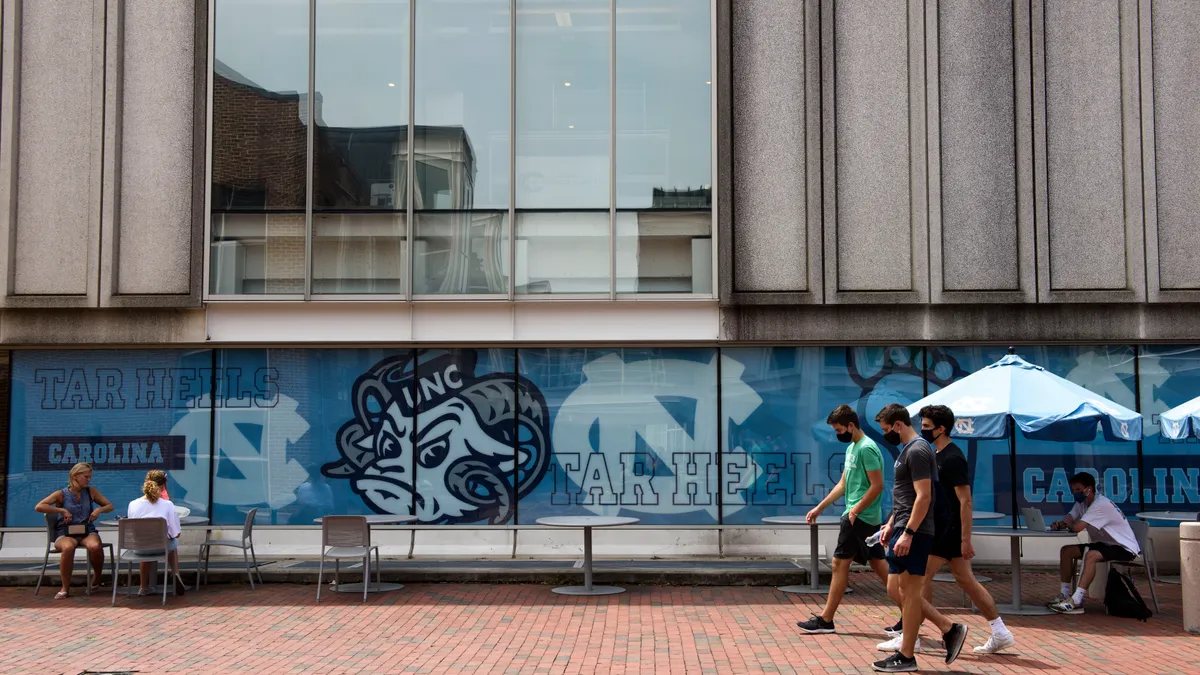Dive Brief:
- The University of North Carolina at Chapel Hill announced Friday that it will cover tuition and fees for in-state students whose families earn less than $80,000 a year, beginning with the incoming undergraduate class in 2024.
- The free tuition offer is in response to the U.S. Supreme Court deeming the public flagship’s race-conscious admissions practices unlawful late last month.
- Pundits and higher ed leaders have said they feared the Supreme Court decision would lead to fewer underrepresented students being admitted to selective institutions like UNC-Chapel Hill.
Dive Insight:
The higher ed world is still dissecting the Supreme Court’s mammoth ruling, which overturned decades of legal precedent affirming colleges’ right to incorporate race as one factor in the admissions process.
In essence, the high court found that admissions programs at UNC-Chapel Hill and Harvard University violated the 14th Amendment.
But Chief Justice John Roberts, writing for the majority, noted colleges can consider how race influenced the lives of prospective students — “so long as that discussion is concretely tied to a quality of character or unique ability that the particular applicant can contribute to the university.”
UNC-Chapel Hill Chancellor Kevin Guskiewicz, in announcing the free tuition plan, said the university’s compliance with the Supreme Court ruling means it will analyze how applicants’ “lived racial experience … under some circumstances may illuminate an individual’s character and contributions.”
The university has also hired additional admissions staff “serving in under-resourced communities to spread awareness of our affordability and recruit students from across the state.”
“We want the best students to know that a UNC-Chapel Hill education is a possibility for them,” Guskiewicz said.
While the move means to signal the university’s commitment to historically marginalized students, it’s unclear how many will actually benefit. Guskiewicz did not share that number in his announcement and a UNC-Chapel Hill spokesperson did not respond to a request for comment Monday.
Less than 20% of full-time undergraduates starting college for the first time at UNC-Chapel Hill received federal Pell Grants in 2021-22, according to the most recently available federal data. That amounted to 882 students that year.
UNC-Chapel Hill only accepted 17% of the more than 56,000 students who applied for fall 2022.
Guskiewicz in the announcement also highlighted the university’s existing affordability programs, like the Carolina Covenant and Blue Sky Scholars.
The Carolina Covenant allows students to graduate from the university debt-free, if they or their families are at or below 200% of the federal poverty level — which the university said was $53,000 annually for a four-person household.
The Blue Sky Scholars program offers financial aid for North Carolinians from “middle-income” families who are not eligible for Carolina Covenant. When the university announced the Blue Sky program in 2018, it considered $75,000 a year to be middle income.
Duke University, another highly selective institution in North Carolina, also recently announced that beginning this fall it will cover tuition for North Carolina or South Carolina undergraduates whose families earn $150,000 or less a year. In addition, the private nonprofit university will pay for some housing and food expenses for students whose households make $65,000 or less annually.















